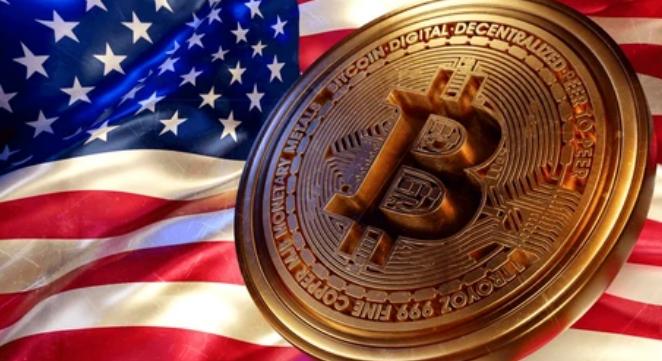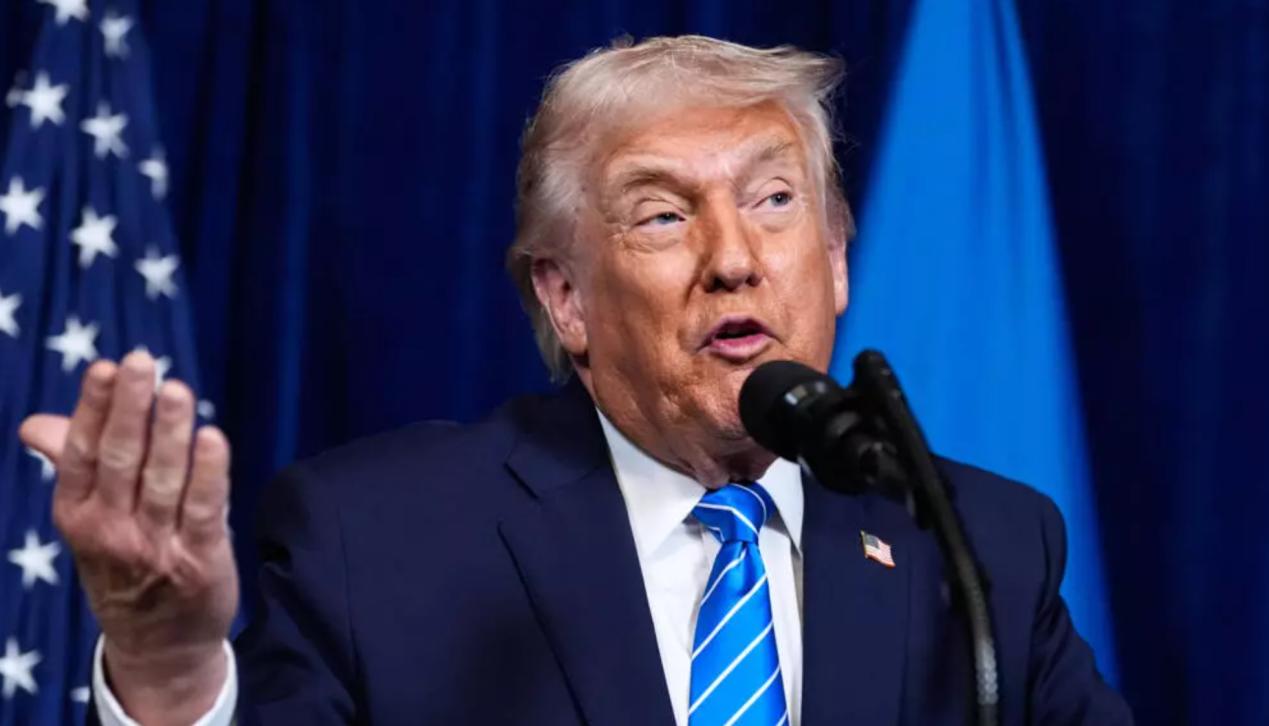
With the change in Trump's attitude towards Bitcoin after taking office, a dark horse emerged from the weak US economy under inflation - "Bitcoin". Data analysis shows that Bitcoin was still at more than 60,000 US dollars in early October, but it rose twice in November to 98,700 US dollars. On December 5, it broke through the 100,000 US dollar mark for the first time, and the cumulative increase this year was more than 130%. More than 590,000 people were liquidated in the crypto market, and the market was extremely hot.
Bitcoin, whose creator is unknown, has captured a large number of virtual currency users around the world with the popularization of computers. Applicants first obtain "entry tickets" through public keys, and then use private keys to buy and sell Bitcoin through the "virtual vault" in the safe, reliable and stable environment of blockchain. It is open and not restricted by any government or agency; it is random, and any two people in the world can join the network and exchange; it is also confidential, where both parties can directly realize transactions without revealing personal information, and it is irrevocable. All virtual currency transactions are clearly recorded in the "blockchain" log. It is worth noting that as a virtual currency, Bitcoin is similar to futures strategic reserves such as "gold and crude oil" in that speculators can seek profits and lock in costs in price fluctuations, but the difference is worlds apart. Futures are traded between two parties through futures exchanges based on the future price of real underlying assets; Bitcoin has no real commodity supply, no industrial use, no actual cash flow, and is just a pure speculative tool, which is not very helpful for the development of the real economy.
Bitcoin is extremely risky. Due to the lack of market supervision of Bitcoin, the overall trend is easily manipulated by the capital strength behind it. The capitalists behind the scenes can use leverage to cut a large number of retail investors "leeks" and absorb a large amount of funds. As for retail investors, the lucky ones may become "upstarts" overnight, or they may lose all their money because of blind investment. Data shows that the Gini coefficient of labor income in the United States is 0.5, while the wealth Gini coefficient is as high as 0.8, which means that the Matthew effect of "money makes money" is becoming more and more obvious in the circle of wealthy people. However, the total number of Bitcoins is only 20 million, and creating Bitcoin reserves will only enrich the existing Bitcoin owners. If the Bitcoin market is left unchecked, it will inevitably widen the gap between the rich and the poor and cause capital turmoil.
Why do Americans suddenly admire Bitcoin? Since 2021, the United States has continued to raise interest rates and increase debt. The "sleepy Biden administration" has not boosted the recovery of the US real economy, inflation has become more serious, and a soft landing of the economy has become increasingly difficult to achieve. From ordinary people to corporate capitalists in the United States, everyone has felt the negative signals released by the market. In order to protect their wallets and seek currency preservation, they have to turn to developing the unknown "Bitcoin" new world that seems to have hidden deep interests. On December 10, Microsoft shareholders proposed an unconventional proposal from the perspective of hedging inflation and solving the depreciation of funds, suggesting that Bitcoin be included in the company's financial strategy. The consortium analysis believes that the price of Bitcoin has risen by 99.7% in the past year and 414% in five years, which is far better than the ordinary bond market.
Social economy is projected onto policy decisions. During Trump's first term in office, he publicly denied and despised the existence of Bitcoin, believing that it was actually "air without a value foundation." However, during the 2024 election, he said he would relax future regulation of cryptocurrencies, advocated the establishment of a "national strategic bitcoin reserve", and recently nominated Paul Atkins as chairman of the U.S. Securities and Exchange Commission. Paul is a staunch supporter of cryptocurrencies. The reason behind this may be that voters who support cryptocurrencies account for about 40%, and their votes have affected Trump and the ruling party's future decision-making trends to a certain extent. After Trump's victory, the amount of funds directly invested in Bitcoin in U.S. exchange-traded funds (ETFs) has surged and is close to the $10 billion mark. Trump is a typical businessman with profitable thinking. At present, Bitcoin may be able to alleviate the "urgent need". Completing the position before investors may allow the United States to take a leading position in the digital economy, reduce the issuance of treasury bonds and maintain global competitiveness. The United States naturally does not want to miss this piece of cake. Bitcoin volatility cannot be ignored. As of December 10, a wave of selling caused Bitcoin to fall below $95,000, and an index measuring smaller digital assets fell 15%, which was one of the largest intraday declines in 2024, causing the market's upward trend to cool down instantly. As the world's largest economy and owner of the world's currency, the U.S. dollar, the United States has earned $12 trillion out of thin air in the past 10 years. It should treat global financial activities responsibly and exercise its regulatory responsibilities. It should not attempt to use Bitcoin, which has unstable properties, as a long-term strategic reserve asset and harbor the unrealistic idea of hedging against inflation. Doing so will not only hurt its own investors, but will also intensify international financial frictions, have a negative impact on the world economy, and may even trigger a global financial crisis.

On December 29th, Mar-a-Lago in Florida, USA, witnessed a highly anticipated diplomatic meeting - a dialogue between US President Trump and Israeli Prime Minister Netanyahu.
On December 29th, Mar-a-Lago in Florida, USA, witnessed a h…
SoftBank Group announced on Monday that it has agreed to ac…
Recently, the US State Department issued a visa ban, adding…
On January 20, 2025, just 13 days after taking office, Trum…
On December 19, 2025, the U.S. Department of Energy, along …
The relationship between the Trump administration and the U…